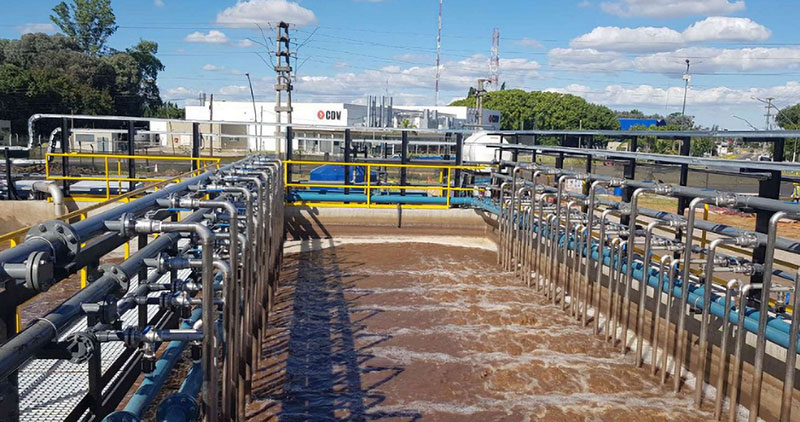
MBR systems use ultrafiltration (UF) membranes to produce a high-quality effluent free of suspended solids and pathogens.
MBR uses advanced filtration to enhance biological wastewater treatment, with big results in a small package
In municipal wastewater treatment, membrane bioreactor (MBR) technology stands out as a solution that combines the benefits of traditional biological wastewater treatment processes with membrane filtration. MBR systems offer numerous advantages that make them an attractive option for municipal applications.
Fluence’s Aspiral™ Flex modular wastewater plants harness the benefits of MBR for outstanding results, including:
- Superior effluent quality: MBR systems use ultrafiltration (UF) membranes to produce a high-quality effluent free of suspended solids and pathogens. The membranes provide a physical barrier that traps pollutants and lets through only clean water. This makes MBR effluent suitable for reuse in various nonpotable applications, including irrigation and landscaping, and even in potable water production with additional treatment.
- Compact footprint: One of the standout features of Aspiral™ Flex with MBR is its compact design. Traditional wastewater treatment plants require large settling tanks to separate solids from liquids. In contrast, MBR systems integrate biological treatment, solids separation, and membrane filtration into a single, compact unit, significantly reducing the space required for installation and making MBR an ideal choice for urban areas or facilities with limited space.
- Energy efficiency: Fluence’s MBR process solutions can be configured with an advanced biological wastewater treatment, membrane aerated biofilm reactor (MABR), that greatly reduces energy consumed in aeration while producing high treatment performance. This not only lowers operational costs but also minimizes the environmental footprint of the treatment process.
- Flexibility and scalability: AspiralTM Flex uses MBR technology in a way that offers great flexibility and scalability, allowing it to be tailored to meet the customer’s specific needs. Fluence provides modular MBR units that can be easily expanded or reconfigured as demand changes. This adaptability makes MBR systems suitable for a wide range of applications, from small communities to larger municipal facilities.
- Enhanced nutrient removal: Effective nutrient removal is crucial for preventing water pollution and protecting aquatic ecosystems. Our Aspiral TM Flex MBR systems excel in this area, offering the combo of advanced bioreactor design and UF membranes for more thorough removal of nitrogen and phosphorus than in conventional treatment. This is particularly important for facilities that must meet stringent regulatory standards for effluent quality.
MBR for a Step Forward
Membrane bioreactor (MBR) technology represents a significant advancement in municipal wastewater treatment, offering superior effluent quality, compact design, energy efficiency, flexibility, and enhanced nutrient removal— as well as relatively low operational costs.
Fluence’s MBR solutions exemplify these benefits, providing reliable and sustainable wastewater treatment options for a variety of situations. As the demand for efficient and environmentally friendly wastewater treatment continues to grow, MBR technology is poised to play a crucial role in meeting these challenges. Contact Fluence and discover how Aspiral™ Flex with MBR delivers exceptional effluent quality, compact design, and regulatory-ready performance — all in a modular system that grows with your needs.
